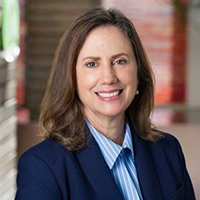
Ethical Constraints on Referrals of Legal Work

Whether you are a new lawyer or highly experienced in the practice of law, referrals of legal work are central to developing a successful law practice. This article addresses some of the important ethical considerations in giving and receiving referrals of legal work.
Engaging a third party to provide referrals is an option, depending on your area of legal practice. For example, you may want to consider joining the San Diego County Bar Association’s Lawyer Referral Service.
For profit referral services are also available. If you enter into an agreement with a third party to provide client referrals, you should determine whether the individual or entity is registered with the State Bar of California and operated in conformity with State Bar Standards. Cal. Bus. & Prof. Code § 6155; Cal. Rules of Prof. Conduct, rule 7.2(b)(2).
A lawyer cannot participate in an unregistered lawyer referral service. Jackson v. LegalMatch (2019) 42 Cal.App.5th 760. A lawyer has a responsibility to understand how client leads are being generated. A lead generator who lurks online to obtain leads for potential clients and calls clients regarding a lawyer’s availability may be violating rules regulating solicitation. ABA Form. Op. 501 (2022).
One classic path to increase your referrals is networking. Much networking is informal, such as bar association events where lawyers mingle, or trade-related events where lawyers mix with non-lawyers. Can you tell others that you are engaged in the practice of law, and ask your professional contacts to give your contact information to anyone who might be in need of a lawyer? Yes, according to a recent ethics opinion. ABA Formal Op. 501 (2022).
Perhaps you would like to join a networking organization in order to increase referrals to your legal business. Take a close look at the applicable rules of the networking organization and consider whether it operates as a lawyer referral service required to be registered with the State Bar of California. Lawyers may join a networking group that does not promise referrals as a benefit of joining, does not limit the number of lawyers who can join the group, and does not pressure the lawyer to provide referrals to other members. San Diego County Bar Ass’n Formal Op. 2021-1 (2021). Payment of a membership fee to a networking group may also violate Rule 7.2(b).
In your formal and informal networking efforts, you will encounter many non-lawyers who may want to refer work to you, so it is important to understand ethics rules governing non-lawyer referrals. Payment for referrals from non-lawyers is generally not permitted, with a few exceptions. Rule 5.4(a). You can offer a gift or gratuity to a person who recommends you for work, provided you did not have an understanding that a gift would be forthcoming in exchange for referrals. Rule 7.2(b)(2). You may enter into an arrangement to refer clients to another lawyer or non-lawyer, as long as the arrangement is not exclusive and it is disclosed to the client. Rule 7.2(b)(5).
One great source of referrals is other lawyers. When another lawyer refers a legal matter to you, fee sharing with the other lawyer is permissible, as long as the lawyers enter into a written agreement regarding the division of the fee, and the client consents in writing after full disclosure of the division of the fee, the lawyers involved and terms of the fee division. Rule 1.5.1(a).